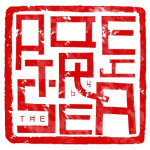Three-Day Workshops/Seminars—Run Wed, Thur, and Fri pm. Cost $949 (Includes panels & evening readings, lunch & dinner)
—Dan Albergotti, Melissa Balmain, Anna M. Evans, Allison Joseph, Joshua Mehigan
One-Day Workshops— Cost $150 per workshop
—Austin Allen, Barbara Crooker, Matt Miller, Anna Lena Phillips Bell, Clare Rossini,
Panels & Evening Readings, Lunch & Dinner Only—Cost $649
Three-Day Workshops/Seminars
It’s Just a Little Song, After All: Exploring the Myriad Possibilities of the Malleable Sonnet
with Dan Albergotti
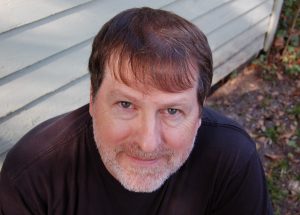 No fixed form is more prominent or durable in English-language poetry than the sonnet (sonnetto, It., “little song”). But how “fixed” is this form? Or how much should it be? From its very beginnings, practitioners have been restless with the sonnet’s rules—bending them, breaking them, twisting them into beautifully strange hybrid species. In this three-day workshop, we will examine some of the ways poets have worked the sonnet to their individual will while still honoring the form’s tradition. We will pay particular attention to sonnets written by American poets in the last 10-20 years, examining both subtle variation and more radical experiment. Participants will be encouraged to bring their own sonnets to the workshop for discussion and will also be provided with prompts to generate new work. Poets of all levels of experience with the form are welcome, from pure beginners to seasoned sonneteers.
No fixed form is more prominent or durable in English-language poetry than the sonnet (sonnetto, It., “little song”). But how “fixed” is this form? Or how much should it be? From its very beginnings, practitioners have been restless with the sonnet’s rules—bending them, breaking them, twisting them into beautifully strange hybrid species. In this three-day workshop, we will examine some of the ways poets have worked the sonnet to their individual will while still honoring the form’s tradition. We will pay particular attention to sonnets written by American poets in the last 10-20 years, examining both subtle variation and more radical experiment. Participants will be encouraged to bring their own sonnets to the workshop for discussion and will also be provided with prompts to generate new work. Poets of all levels of experience with the form are welcome, from pure beginners to seasoned sonneteers.
Dan Albergotti is the author of The Boatloads (BOA Editions, 2008) and Millennial Teeth (Southern Illinois University Press, 2014), as well as two chapbooks from Unicorn Press: The Use of the World (2013) and Of Air and Earth (2019). His poems have appeared in 32 Poems, The Cincinnati Review, Crazyhorse, Five Points, The Southern Review, The Virginia Quarterly Review, The Best American Poetry 2017, and two editions of The Pushcart Prize, as well as other journals and anthologies. He is a professor of English at Coastal Carolina University.
Funny Forms
with Melissa Balmain
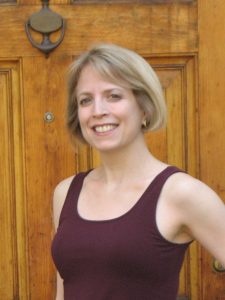 When you think of comic poetry, chances are you think of certain forms: clerihews, double dactyls, epigrams, limericks. This workshop will explore all the above, plus some forms you may not have heard of (limicks, anyone? Tanka wankas?). Among the questions we’ll tackle: what sorts of material best suit each form? Is there a “holy grail” for each, in terms of meter and/or rhyme? What are the secrets to getting poems published in these forms, and to winning contests that feature them? Do you need to follow all the forms’ rules? Should some rules even (gulp) be thrown out? Warning: side effects of this workshop may include sore ribs, sore facial muscles, and wet pants.
When you think of comic poetry, chances are you think of certain forms: clerihews, double dactyls, epigrams, limericks. This workshop will explore all the above, plus some forms you may not have heard of (limicks, anyone? Tanka wankas?). Among the questions we’ll tackle: what sorts of material best suit each form? Is there a “holy grail” for each, in terms of meter and/or rhyme? What are the secrets to getting poems published in these forms, and to winning contests that feature them? Do you need to follow all the forms’ rules? Should some rules even (gulp) be thrown out? Warning: side effects of this workshop may include sore ribs, sore facial muscles, and wet pants.
Melissa Balmain edits Light, America’s premier journal of comic verse, and teaches humor writing and poetry writing at the University of Rochester. A winner of the Able Muse Book Award and the Poetry by the Sea Sonnet Contest, she has been a finalist for the Richard Wilbur Award, the Donald Justice Poetry Prize, the X.J. Kennedy Parody Award, and the Howard Nemerov Sonnet Award (twice). Her poems and/or prose have appeared in The American Bystander,American Life in Poetry, The Hopkins Review, Lighten Up Online, Literary Matters, McSweeney’s, Measure, Mezzo Cammin, The New Criterion, The New Yorker, The New York Times, Poetry Daily, Rattle, and The Washington Post. Her poetry collections are Walking In on People (Able Muse Press) and The Witch Demands a Retraction: Fairy Tale Reboots for Adults (Humorist Books). She is a recovering mime.
The Poetry Chapbook as Art Form and Artistic Statement
with Allison Joseph
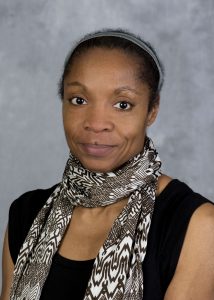 Poets have long used the chapbook as an expression of poetic liberty. In this workshop, we’ll examine why poets write chapbooks, how chapbooks differ from full-length manuscripts, how to pull a chapbook manuscript together, and how and where to publish chapbooks. We’ll discuss how to sequence poems in a chapbook, and when to know when a project’s scope is a good fit for the shorter length of a chapbook. We’ll take a look at chapbooks from No Chair Press, the chapbook imprint founded by Allison Joseph, and talk about how chapbooks can be a publishing project for individual writers, small presses, university classrooms, writer’s groups, and poets working in collaboration.
Poets have long used the chapbook as an expression of poetic liberty. In this workshop, we’ll examine why poets write chapbooks, how chapbooks differ from full-length manuscripts, how to pull a chapbook manuscript together, and how and where to publish chapbooks. We’ll discuss how to sequence poems in a chapbook, and when to know when a project’s scope is a good fit for the shorter length of a chapbook. We’ll take a look at chapbooks from No Chair Press, the chapbook imprint founded by Allison Joseph, and talk about how chapbooks can be a publishing project for individual writers, small presses, university classrooms, writer’s groups, and poets working in collaboration.
Allison Joseph lives in Carbondale, Illinois, where she is Professor of English and Director of the MFA Program in Creative Writing at Southern Illinois University. She serves as poetry editor of Crab Orchard Review. Her books and chapbooks include What Keeps Us Here (Ampersand Press), Soul Train (Carnegie Mellon University Press), In Every Seam (University of Pittsburgh Press), Worldly Pleasures (Word Tech Communications), Imitation of Life (Carnegie Mellon UP), Voice: Poems (Mayapple Press), My Father’s Kites (Steel Toe Books), Trace Particles (Backbone Press), Little Epiphanies (NightBallet Press), Mercurial (Mayapple Press), Mortal Rewards (White Violet Press), Multitudes (Word Poetry), The Purpose of Hands (Glass Lyre Press), Double Identity (Singing Bone Press) Corporal Muse (Sibling Rivalry), What Once You Loved (Barefoot Muse Press) and Smart Pretender (Finishing Line Press). Her most recent full-length collection, Confessions of a Barefaced Woman was published by Red Hen Press in June 2018 and is the Gold/First Place winner of the 2019 Feathered Quill Award in Poetry and is a nominated work for the 2019 NAACP Image Award in Poetry. She is the literary partner and wife of the late poet and editor Jon Tribble. Her upcoming chapbook, Letter to the Woman Who Stole a Koala, was a winner in the Diode Editions Chapbook Contest and will be published in 2020; her next full-length book, Lexicon, is forthcoming from Red Hen Press in 2021.
Blank Verse
with Joshua Mehigan
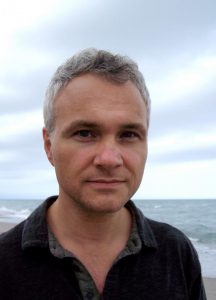 Since its invention by Henry Howard in 1540, blank verse has proven to be one of the most versatile, expansive, and dynamic forms of Anglophone poetry. Without it, much of the greatest poetry written in English simply would not exist. Blank verse can yield a megalith like Paradise Lost, the “divine chit-chat” of Cowper, or the crackerbarrel vernacular of Frost. Or it can be, as it has been for the most importants poets of every age, what the Bonneville salt flats are for race car drivers: a place to open things up and test all your powers of innovation and execution. In this workshop, we’ll look at some expressive textures of blank verse (e.g., pyrotechnic, monumental, meditative, casual) and consider some of the local effects of timing and emphasis that are available to writers working in the form. In addition to workshopping poetry by participants, we will discuss blank verse from the 16th to the 21st centuries, looking closely at examples from Surrey to Erica Dawson. A comprehensive packet will be provided.
Since its invention by Henry Howard in 1540, blank verse has proven to be one of the most versatile, expansive, and dynamic forms of Anglophone poetry. Without it, much of the greatest poetry written in English simply would not exist. Blank verse can yield a megalith like Paradise Lost, the “divine chit-chat” of Cowper, or the crackerbarrel vernacular of Frost. Or it can be, as it has been for the most importants poets of every age, what the Bonneville salt flats are for race car drivers: a place to open things up and test all your powers of innovation and execution. In this workshop, we’ll look at some expressive textures of blank verse (e.g., pyrotechnic, monumental, meditative, casual) and consider some of the local effects of timing and emphasis that are available to writers working in the form. In addition to workshopping poetry by participants, we will discuss blank verse from the 16th to the 21st centuries, looking closely at examples from Surrey to Erica Dawson. A comprehensive packet will be provided.
Joshua Mehigan’s first book, The Optimist, was a finalist for the 2004 Los Angeles Times Book Prize. His second, Accepting the Disaster, was published by Farrar, Straus and Giroux in 2014 and subsequently cited as a best book of the year in the TLS, The New York Times Book Review, and elsewhere. His poems have appeared in many publications, including The New Yorker, The Paris Review, and Poetry, which awarded him its 2013 Levinson Prize. He has has received writing fellowships from the National Endowment for the Arts (2011) and the Guggenheim Foundation (2015).
One-Day Workshops
Positive Capability: Mystery and Clarity in the Poem
with Austin Allen
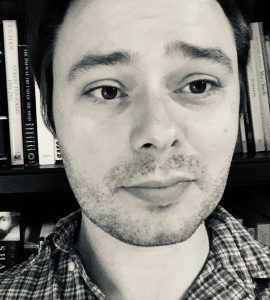
John Keats suggested that what he called “negative capability”—the capability “of being in uncertainties, mysteries, doubts, without any irritable reaching after fact and reason”—was the defining quality of a great poet. But how does this concept work on the level of the poem? When are uncertainty and mystery fruitful in poetry, and when are they simply wishy-washy or opaque? Is there a place for “fact and reason” in poems (as long as we don’t reach for them too “irritably”)? This workshop will discuss ways in which poets can achieve a successful balance, or tension, between mystery and clarity in their work.
Austin Allen’s debut poetry collection, Pleasures of the Game (Waywiser Press, 2016), was awarded the Anthony Hecht Poetry Prize. His poetry has recently appeared in The Hopkins Review, The Sewanee Review, The Yale Review, 32 Poems, and The Missouri Review, and his criticism has been featured by Poetry Foundation, Parnassus, and other outlets. He lives and teaches in Cincinnati.
The Art of Writing About Art
with Barbara Crooker
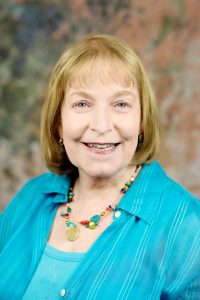
In this workshop, we will explore the many ways paintings (and other works of art) inspire poems. We will discover different ways to approach writing ekphrastic poetry via paired examples of paintings and contemporary poems, and we will discuss a variety of techniques and their effectiveness. There will be a hands-on in-class exercise, and participants will leave with one new poem.
Barbara Crooker is a poetry editor for Italian Americana, and author of nine full-length books of poetry; The Book of Kells (Cascade Books, 2018) won the Best Poetry Book 2018 Award from Poetry by the Sea and Some Glad Morning was published in 2019 in The Pitt Poetry Series. Her awards include the WB Yeats Society of New York Award, the Thomas Merton Poetry of the Sacred Award, and three Pennsylvania Council on the Arts Creative Writing Fellowships. Her work appears in a variety of anthologies, including Common Wealth: Contemporary Poets on Pennsylvania, and The Bedford Introduction to Literature. Ekphrastic poetry comprises about 25 % of her work.
The Lyrical Littoral: The Sea as a Source for Poetry
with Matt Miller
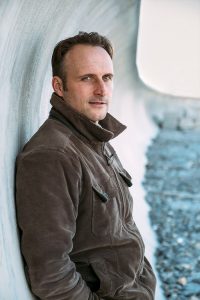
“Whenever it is a damp, drizzly, November in my soul,” says Ishmael in the opening pages of Moby Dick, “I account it is high time to get to water as soon as I can.” In this generative workshop we will do just that, get to the water, at least with our words. We will look at the sea, specifically the littoral zone of the Atlantic coast, as a source for language, image, experience, metaphor, and inspiration. We will consider the sea as our shared biosphere where fishermen grind out a living on dwindling catches, where surfers slip into winter wetsuits to take on Nor’easter swells, where summer sand castles topple with the tide, and where lovers hold out for the promise of sunrise. Taking a look at sea inspired poems and culling from our intimate relationship with water, we will then generate and share poems of our own.
Matt W. Miller is the author of the collections The Wounded for the Water (Salmon Poetry), Club Icarus, selected by Major Jackson as the winner of the 2012 Vassar Miller Poetry Prize and Cameo Diner: Poems. He has published poems and essays in Birmingham Poetry Review, Harvard Review, Narrative Magazine, Notre Dame Review, Southwest Review, 32 Poems, Memorious, and Crazyhorse, among other journals. Winner of the River Styx Microfiction Prize and Iron Horse Review’s Trifecta Poetry Prize, he is a former Wallace Stegner Fellow in Poetry at Stanford University and a Walter E. Dakin Fellow in Poetry at the Sewanee Writers’ Conference. He teaches English at Phillips Exeter Academy and lives with his family in coastal New Hampshire.
Tools from the Craft of Editing
with Anna Lena Phillips Bell
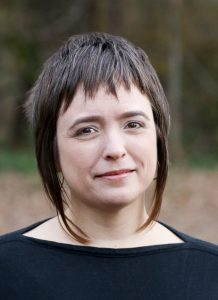
Editing is an act of love—an effort to help writers find their work’s best form, and to help readers discover that work. The editor-poet relationship is an intimate one, requiring compassion, discernment, listening, and skill-qualities that serve revision as well. This workshop will offer poets fresh strategies for revising their poems, gleaned from editorial practice, with particular focus on the deep line-level work that an editor can offer. With poems written during the workshop and with work in progress, we’ll practice using tools from the craft of editing, including the art of querying; identifying and fine-tuning syntactic strategies and rhetorical figures; and considering interactions between sentence and line, syntax and meter, in order to better use those interactions toward our purposes. Poets should bring with them three copies each of a poem in progress. At the end of the workshop, we’ll set intentions for our poetic practice in the coming weeks and months.
Anna Lena Phillips Bell is the author of Ornament, winner of the Vassar Miller Poetry Prize, and A Pocket Book of Forms, a travel-sized, fine-press guide to poetic forms. Her work appears or is forthcoming in the Southern Review, 32 Poems, Five Points, the Sewanee Review, and A Literary Field Guide to Southern Appalachia, among others. The recipient of a North Carolina Arts Council Fellowship in literature, she teaches at UNC Wilmington, where she is the editor of Ecotone, the literary magazine that seeks to reimagine place. She lives with her family near the Cape Fear River, and calls Appalachian square dances in North Carolina and beyond.
The Pantoum for Beginners
with Clare Rossini
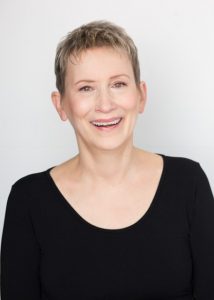 A fifteenth century Malayan form, the pantoum has been practiced by American poets from John Ashbery to Anne Waldman to Mojave-Latinx poet Natalie Diaz. Because it can be played strict or loose, with or without rhyme, the pantoum appeals to poets who enjoy working in received forms as well as those more at home in free verse. Workshop participants will be invited (but not required!) to write a short pantoum in advance; I’ll e-mail the “recipe” with examples. Come prepared to be immersed in the music of this non-Western form, which Eavan Boland has described as a “mesmerizing chain of echoes.”
A fifteenth century Malayan form, the pantoum has been practiced by American poets from John Ashbery to Anne Waldman to Mojave-Latinx poet Natalie Diaz. Because it can be played strict or loose, with or without rhyme, the pantoum appeals to poets who enjoy working in received forms as well as those more at home in free verse. Workshop participants will be invited (but not required!) to write a short pantoum in advance; I’ll e-mail the “recipe” with examples. Come prepared to be immersed in the music of this non-Western form, which Eavan Boland has described as a “mesmerizing chain of echoes.”
Clare Rossini has published three collections of poems and is co-editor of The Poetry of Capital, an anthology published in 2021 by the University of Wisconsin Press. Her poems and essays have appeared in journals such as The Paris Review, The Kenyon Review, The Iowa Review, Ploughshares, and Poetry, and is widely anthologized, most recently in Together in a Sudden Strangeness: America’s Poets Respond to the Pandemic, and Best American Poetry 2020. A teacher for many years in the Vermont College low-residency MFA program, she currently serves as Artist-in-Residence in the English Department at Trinity College in Hartford, teaching creative writing courses and directing an arts outreach program which places college students in a Hartford public school arts classroom.
